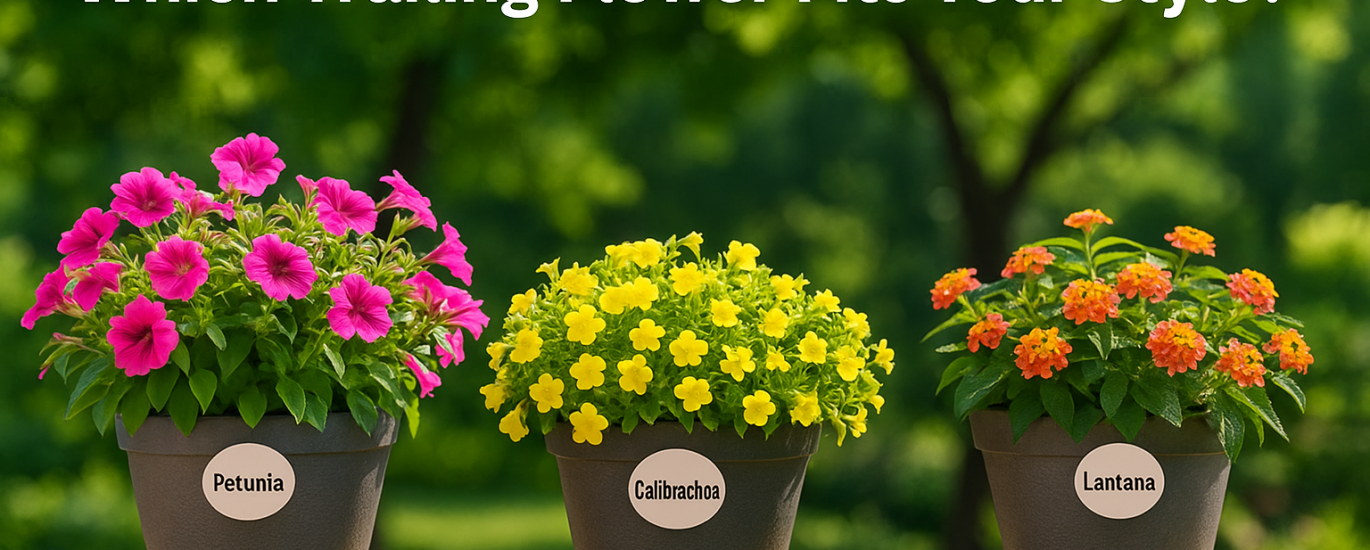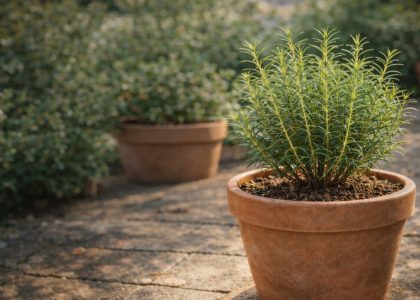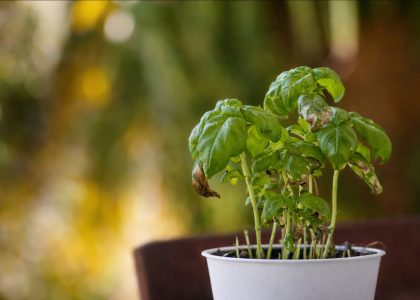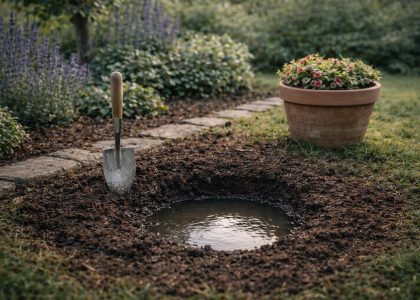Why Compare These Three?
If you're building a hanging basket or container overflowing with color, chances are you're choosing between petunia, calibrachoa, and lantana. All three trail beautifully, bloom abundantly, and attract pollinators—but they offer different experiences in terms of care, texture, climate adaptability, and visual impact.
Which trailing flower blooms best in summer containers? This guide compares petunias, calibrachoa, and lantana by zone, bloom season, care level, and design vibe to help you choose.
Quick Comparison Table
| Feature | Petunia | Calibrachoa | Lantana |
| Zones | Annual in Zones 3–9 | Annual in Zones 3–9 | Perennial in Zones 9–11, annual elsewhere |
| Bloom Season | Spring to frost (12–16 weeks) | Spring to frost (10–14 weeks) | Early summer to frost (10–12 weeks) |
| Sunlight | Full sun | Full sun to part sun | Full sun |
| Drought Tolerance | Moderate | Low to moderate | High |
| Maintenance | Moderate – needs deadheading | Low – self-cleaning blooms | Very low – no deadheading needed |
| Soil Needs | Fertile, well-draining | Well-draining, slightly acidic | Well-draining, drought-tolerant soil |
| Pollinator Appeal | Bees, butterflies, hummingbirds | Bees, butterflies | Butterflies, hummingbirds |
| Growth Habit | Trailing or mounding | Trailing or cascading | Mounding or trailing |
| Notable Varieties | Supertunia®, Wave®, Easy Wave® | Million Bells®, MiniFamous®, Superbells® | Chapel Hill®, Bandana®, New Gold® |
Choose Petunia If You Want:
- A classic cottage look with big, bold blooms
- A wide variety of colors, including doubles and stripes
- A plant that thrives with daily sun and weekly fertilizing
Top Uses: Hanging baskets, large patio pots, window boxes
Style Match: Romantic, traditional, cottage-core
Zones: Annual in Zones 3–9
Bloom Duration: 3–4 months with regular care
Pro Tip: Use Wave® or Supertunia® varieties for better trailing power and reduced deadheading.
Try this look: Petunia (center) + trailing bacopa + upright snapdragon = full spring basket.
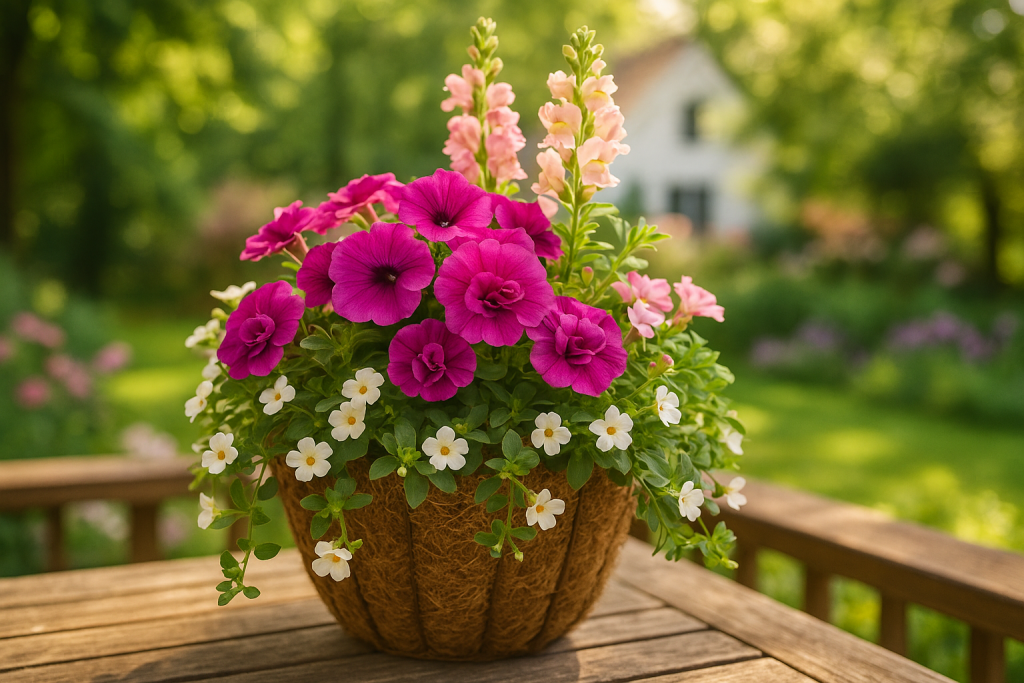
Choose Calibrachoa If You Want:
- Mini petunia-like flowers that are compact and colorful
- A low-maintenance spiller with self-cleaning flowers
- Ideal performance in smaller containers or mixed arrangements
Top Uses: Hanging baskets, small-space planters, vertical wall pockets
Style Match: Modern, tidy, minimal fuss
Zones: Annual in Zones 3–9
Bloom Duration: 2.5–3 months, best with consistent watering
Pro Tip: Calibrachoa prefers iron-rich, slightly acidic soil and good drainage. Use chelated iron if leaves yellow.
Try this mix: Calibrachoa + trailing ivy + coral diascia for a tidy early summer pot.
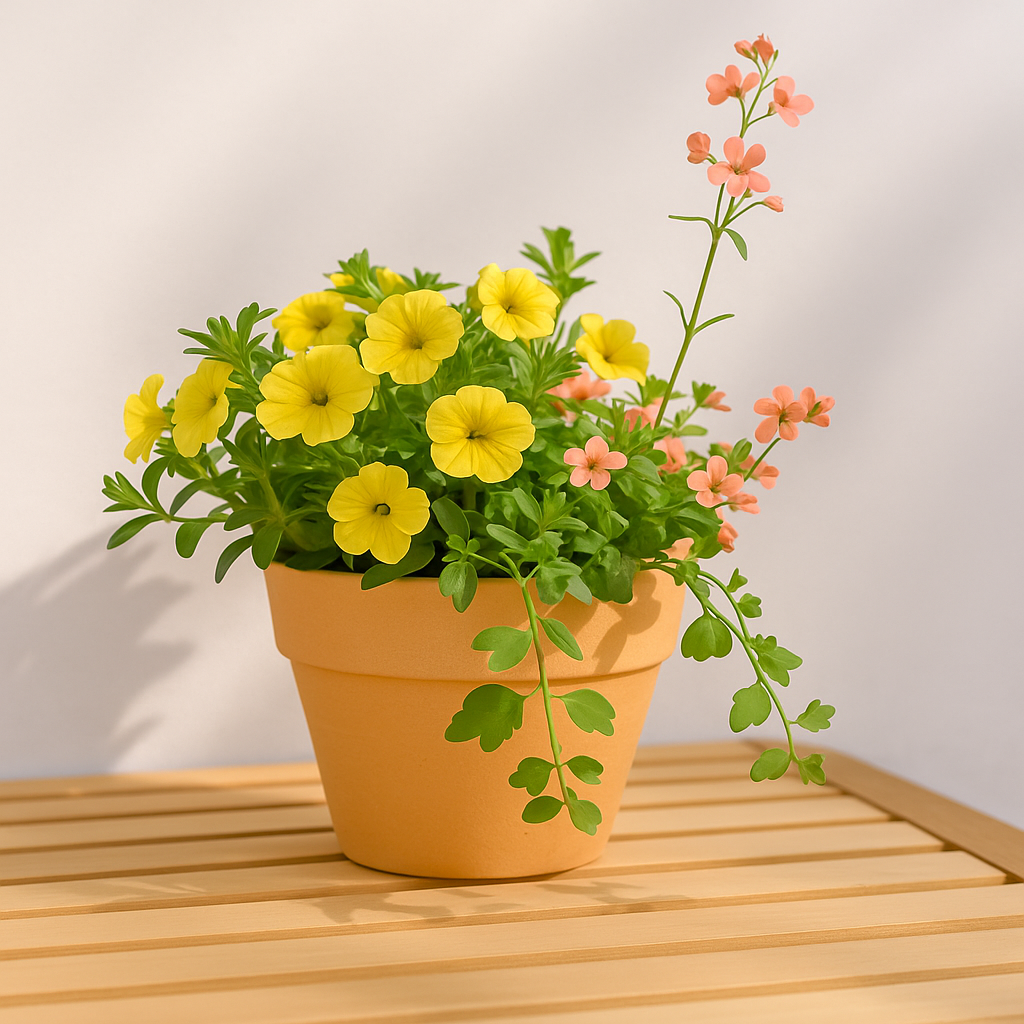
Choose Lantana If You Want:
- A sun-lover with heat and drought resistance
- Clusters of blooms in fiery oranges, reds, pinks, or multicolor blends
- A plant that shrugs off deer and doesn’t demand much attention
Top Uses: Dry climate gardens, coastal containers, butterfly beds
Style Match: Mediterranean, wild, pollinator-friendly
Zones: Perennial in Zones 9–11, annual in Zones 3–8
Bloom Duration: 10–12 weeks in hot conditions
Pro Tip: Combine with upright salvia or trailing verbena for a hummingbird-ready planter.
Hot combo idea: Lantana + purple fountain grass + creeping thyme in a 14” clay pot.
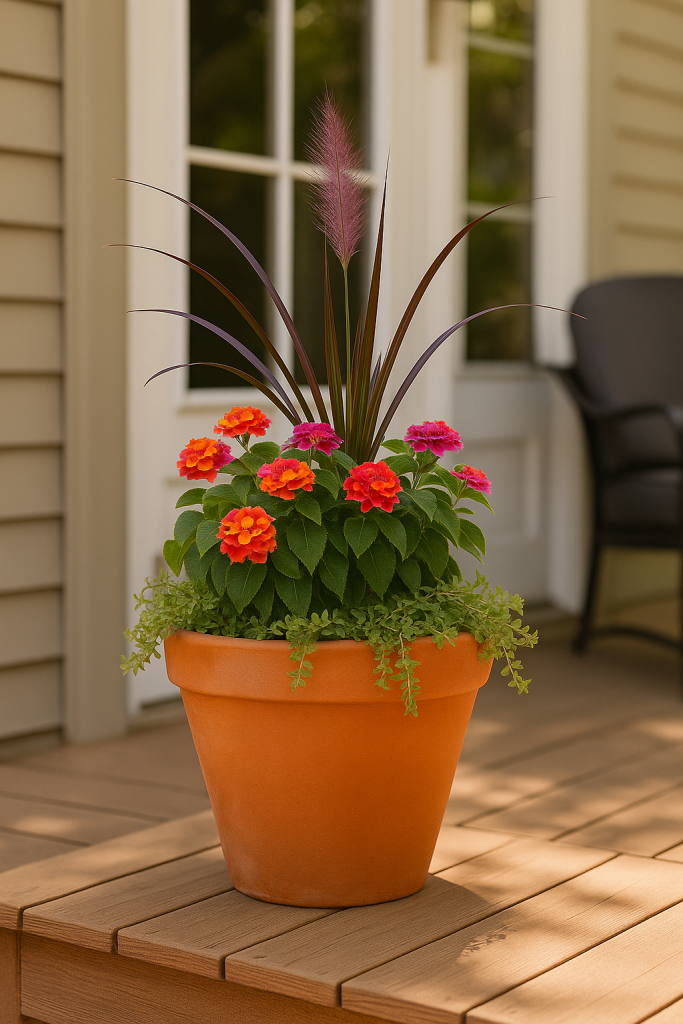
Can You Mix Them Together?
Yes—with the right setup! Try:
- Petunia + Calibrachoa for soft texture + bold color
- Calibrachoa + Lantana for hot-climate, no-fuss hanging baskets
- Petunia + Lantana for contrast in size, texture, and bloom shape
Zone Tip: In Zones 9–11, Lantana will return. In cooler climates, all three are best treated as annuals.
Download your printable guide: “Trailing Flower Trio: Which One Works for You?”
Pin this to your “Container Garden Inspiration” board
Tag your favorite combo @Greenmuse with #TrailingFlowerTrio and vote your favorite:
🔘 #TeamPetunia
🔘 #TeamCalibrachoa
🔘 #TeamLantana
🔘 #MixAndMatchMagic

